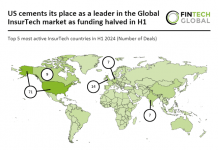From: RegTech Analyst
The Securities and Exchange Commission (SEC) has published a notice of a substituted compliance application by Germany’s top financial regulator.
Substituted compliance refers to an alternative method by which the SEC can allow non-US dealers and major participants to satisfy certain requirements under the Securities Exchange Act of 1934 by complying with comparable foreign requirements.
The one in question was issued for Germam Bundesanstalt für Finanzdienstleistungsaufsicht (BaFin).
The SEC also published a proposed order that would conditionally provide substituted compliance for German firms that are registered with the SEC as security-based swap dealers and security-based swap participants.
“Today’s proposed order reflects a pragmatic approach to the operational and jurisdictional challenges associated with cross-border regulation of security-based swaps,” said Jay Clayton, chairman of the SEC.
“By allowing non-US firms to leverage the systems and processes they use to comply with home country requirements that are comparable to US requirements, substituted compliance can lead to more effective and efficient regulation and oversight. I thank our colleagues at the BaFin and the many EU officials who have worked constructively and cooperatively to move meaningful cross-border oversight forward.”
The SEC said the order reflect the preliminary assessment of the comparability of German and EU requirements, and incorporates conditions intended to help promote comparability in practice. BaFin’s application does not extend to margin and capital requirements. The Commission welcomes applications that address margin and capital requirements.
“I am very grateful for the collaboration and cooperation of our EU and German colleagues, which demonstrates our shared commitment to workable regulation of the global security-based swap markets,” said Hester Peirce, commissioner at the SEC.
“In the coming months I fully expect that the commission will continue to consider substituted compliance for additional EU and other jurisdictions, so that potential registrants will have ample time to prepare for registration in November of 2021.”
Copyright © 2020 FinTech Global











